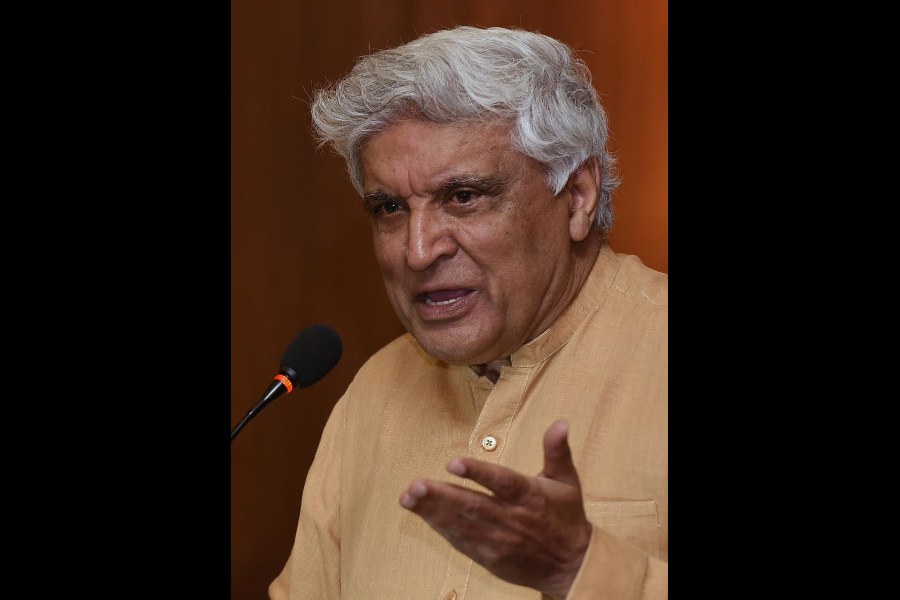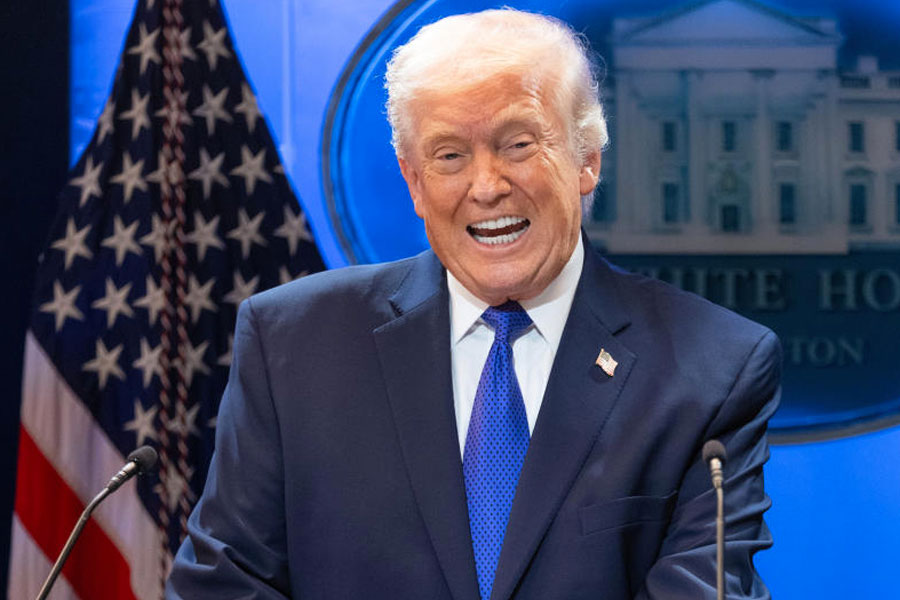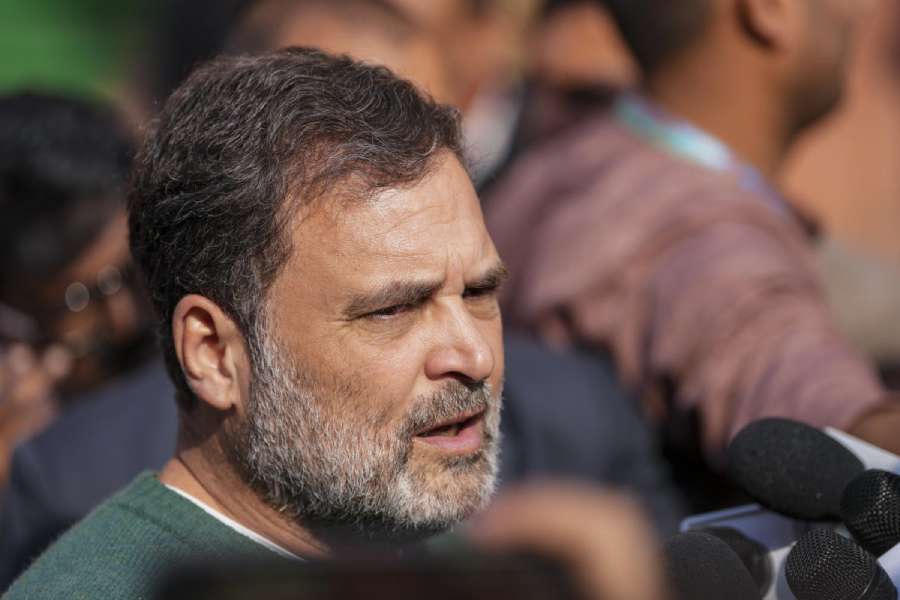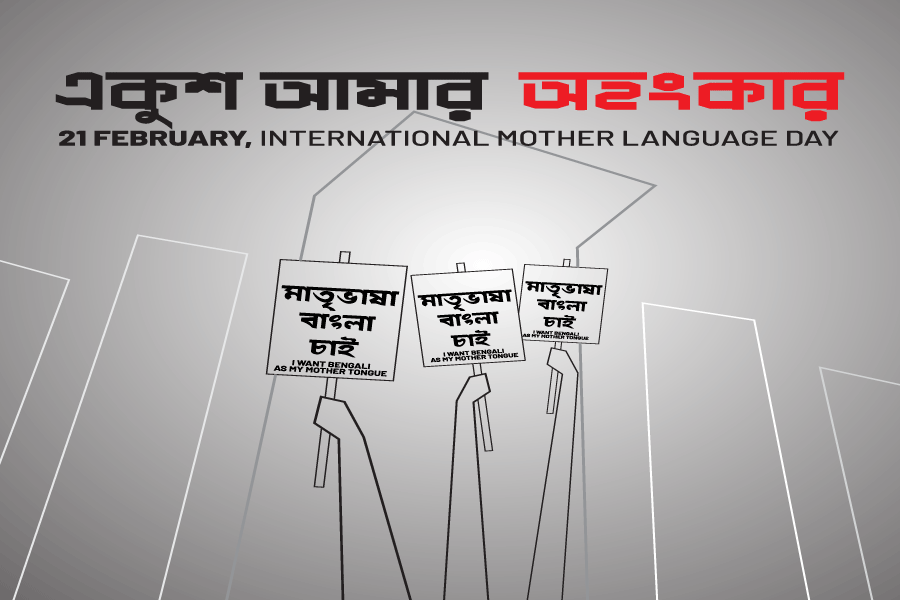Hollow act
Sir — A standing ovation is a mark of special honour for an outstanding performance. Notably, the standing ovation has become a common ritual after most screenings at film festivals these days and is increasingly lasting longer. For instance, The Smashing Machine received a 15-minute standing ovation at the ongoing Venice Film Festival. But the length of the ovation does not necessarily correlate to the quality of the film as factors like group pressure are known to influence the audience to stand and clap for prolonged periods. Has the frequent use of the gesture rendered it hollow?
Debashruti Das,
Ahmedabad
Tax breather
Sir — The government announced the roll-out of its next-generation tax reforms to ensure ease of living and build an atmanirbhar Bharat (“Windfall relief in GST rates”, Sept 4). The four-tier goods and services tax regime has been slashed to only two slabs. The tax rate has been reduced from 12-18% to 5% on a host of personal-use items. This is welcome.
At the same time, it is worth noting that the maximum revenue of the government comes from the 18% slab. Thus, altering the tax structure by cutting two slabs will not significantly affect revenue as consumption is expected to rise going forward. The sympathisers of the ruling dispensation claim that the GST reforms are a Diwali gift to the nation. This will ring true only if the common man feels the ultimate advantage of the revised tax rates.
Kirti Wadhawan,
Kanpur
Sir — The Union finance minister, Nirmala Sitharaman, must be thanked for reducing the tax rates on a number of items for daily use and, most importantly, on life and health insurance. In the new two-tier tax regime, television sets, air conditioners, small cars and motorcycles — necessities for the salaried middle class — are about to become cheaper, attracting 18% GST. The only concern is whether these benefits will percolate down to the common man.
N. Mahadevan,
Chennai
Sir — It is essential to monitor the impact of the reduced tax rates on small businesses as they may find it difficult to navigate through the reforms. Transparency in GST compliance for micro-businesses could further streamline this transition and avoid unforeseen disruptions in the market.
Vijaykumar H.K.,
Raichur
Abysmally low
Sir — The issue of women’s scarce representation in the higher judiciary came under the glare after the Collegium elevated Justice Vipul M. Pancholi to the Supreme Court, overlooking at least three women judges in terms of seniority (“Too few”, Sept 2). Despite being the guardian of constitutional morality and equality, the apex court itself reflects a glaring gender imbalance. The insights of women judges can be crucial, especially in cases where the dynamics of marriage and family life are central.
Representation is not tokenism; it is a constitutional necessity to ensure justice. For a country that has about 48% population, the abysmally low share of women judges in the judiciary is indeed shameful.
Ranganathan Sivakumar,
Chennai
Bigotry wins
Sir — It is deplorable that the West Bengal Urdu Academy postponed an event featuring the Urdu exponent and poet, Javed Akhtar, on the pretext of hurt sentiments (“Shared spots”, Sept 3). The fact that West Bengal, a bastion of free thought and open debate, is genuflecting to religious bigotry is disgraceful. The government’s refusal to allow the screening of the film, The Bengal Files, in Calcutta recently was proof of its high-handedness. The incidents concerning the Bangladeshi writer, Taslima Nasreen, under the erstwhile Left Front regime are still fresh in public memory. Electoral compulsions and appeasement politics are the root causes behind such repression.
Soumendra Choudhury,
Calcutta

Javed Akhtar
Sir — The Trinamool Congress is trying to appease Islamic organisations ahead of the assembly elections next year. The government was compelled to postpone a literary event after Islamic groups vehemently opposed a literary body’s invitation to Javed Akhtar, who identifies himself as an atheist. The government’s kneeling to religious conservatism is deplorable.
S.S. Paul,
Nadia
Sir — I disagree with the argument in the editorial, “Shared spots”, that “Hindutva and Islamic dogmatism are two sides of the same coin.” This was a generalisation rather than a reasoned conclusion on fundamentalism. The controversy around the WBUA’s postponement of an Urdu event featuring Javed Akhtar shows how quickly such issues get politicised.
Religious bigotry is less the outcome of theology than of political opportunism. Be it the opposition to Javed Akhtar in Bengal or to Banu Mushtaq in Karnataka, the pattern is the same — political parties igniting religious sentiments to consolidate their vote banks. If political parties had genuinely honoured secularism, such weaponisation of faith would lose relevance.
Sourav Ash,
Calcutta










